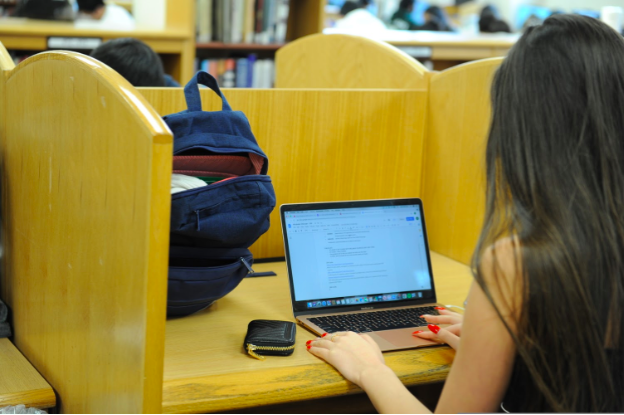Spying: Legal or Illegal?
With an estimated 50 billion devices that may collect data on their users by 2030, 127 new devices per second being connected to the internet, and 4.66 billion people using the internet as of 2021, technology use is growing at a monstrous rate-and so is the ability to spy on people using these devices.
Any student using a computer in any school worldwide using the school’s network makes them open to the institution being able to track their activity.
Due to COVID-19, technology use in the homes of students skyrocketed for classes and meetings. Although this may have made life easier by allowing students to attend class in their pajamas, it has also endangered students’ privacy worldwide, ushering in a distinctly Orwellian nightmare.
Devices can track what you do on them, from what you watched on YouTube a few minutes ago down to the second you searched for a photo a week ago. As a result, there is a common saying: once something is on the internet, it can never be erased. But could companies be spying on us using the devices that they distributed during the pandemic? It is something to consider.
There has been a surplus in the number of programs being developed to spy on students worldwide through tracking their emails, documents, private messages, and social media activity. The creators of these programs, including Classroom Spy Pro, Netop Vision 7, and GoGuardian, argue that this is for the safety of its students and faculty in that they can track certain dangerous keywords in emails, internet searches, and private messages. This includes triggering words and threatening words. But is that safety more valuable than privacy? “I am cautious when I use the internet. I feel like I have to be careful with my every move,” said Najiha Uddin ’23.
However, there are also many students who do not mind their privacy being invaded in this way. Amy Lee ’23 noted, “to be honest I don’t really care, because I don’t do anything that I should not be doing when I am completing schoolwork.” This is an argument that continuously surfaced when people were asked why they do not mind if their devices were being tracked. Conventional wisdom dictates that it is typically those who have something to hide who are afraid of this new development.
According to a survey that I sent to 24 randomly selected students attending Bronx Science, 100% of respondents are aware that digital devices can be used to track you. 58.35% said they are not okay with this happening while 41.7% said that they are. 91.7% did not expect devices given out by institutions to be able to spy on them while 8.3% did. Importantly, 66.7% still feel comfortable using these devices while 33.3% no longer feel comfortable. In the short answer question, all of the respondents wrote that they believed that institutions should stop spying on their students while simultaneously not feeling too disturbed about the issue. There was one reasoning all of the respondents had in common — they have nothing to be scared of. They all said that the reason they do not have an issue with companies spying on their activity is because they do not do any sort of activities that could cause problems if people were to find out.
So the big question remains: is this all legal? For the most part, yes.
In 2014, the Future of Privacy Forum (FPF) and the Software & Information Industry Association (SIIA) created the Student Privacy Pledge. In this pledge they stated that they would protect the privacy of students by preventing the leakage of student personal information. You may ask, well isn’t spying a violation of this pledge? More often than not, it is not a violation. It is completely legal because the pledge does not specify what exactly is classified as a student’s personal information. Using this loophole, companies are often not charged for their collection of “data” because there is no concrete definition of what can be considered personal information.
This information may baffle you or simply confirm the suspicions that you already had. Whichever one it may be, it is imperative to be aware of this issue in order to protect students’ right to privacy. The extent of how much spying may expand in the future is unpredictable, and we should be prepared for what this issue has in store for us, in the years to come.
“I am cautious when I use the internet. I feel like I have to be careful with my every move,” said Najiha Uddin ’23.
Sydney Lee is a Copy Chief for ‘The Science Survey.' She finds journalistic writing very interesting because of the variety of topics that it can cover....











